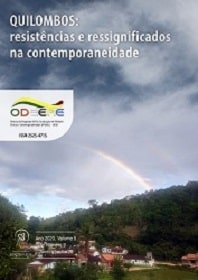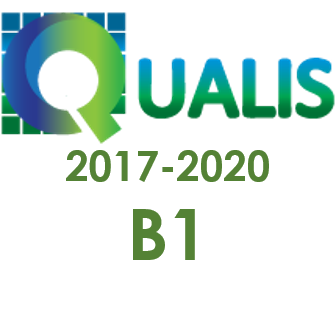How to work the students' cultural repertoire and communication as proposed by the BNCC based on Afro-descendant culture?
DOI:
https://doi.org/10.22481/odeere.v5i9.6611Keywords:
Afro-descendant culture; Cultural Repertoire; National Common Curricular Base; Students; Communication.Abstract
The real need to adapt the school curriculum to the so-called essential learning cited in the National Common Curricular Base (BNCC) has been highlighted in discussions and training in the educational area across the country. The 21st century school, despite having already made some progress, is still stuck with textbooks whose proposal is the transmission of contents that are supposed to be charged in official exams. Many of these pedagogical proposals do not consider the student as an integral being with a head, heart and hands. The focus is simply the cognitive aspect. Perhaps this is the reason why many educators working in the classroom have the impression that they are talking to themselves. Students do not show the slightest motivation to learn. This experience report was made through an intervention, developed during a quarter at Colégio Dom Bosco in Ipiaú - Ba, based on a set of activities mediated by coordinators, teachers and, mainly, students who, as proposed by BNCC, acted as protagonist of the teaching-learning process. This was what provided the interdisciplinary project motivated by the book Africa and Brazil: history and culture of Editora FTD, whose author is Eduardo D’Amorim. The school leaves aside the mechanical work of content that resignifies learning involving themes such as racism, hunger, misery, prejudice, human rights, and the entire artistic repertoire of students. All of this linked to content in the areas of Languages and Human Sciences, focusing on two competences proposed by the Base: cultural repertoire and communication.
Keywords: Afro-descendant culture; Cultural Repertoire; National Common Curricular Base; Students; Communication.
Downloads
References
ANTONIL, André João. Cultura e Opulência no Brasil por suas drogas e minas. Obra publicada originalmente em 1711. Disponível em: http://www.dominiopublico.gov.br/download/texto/bv000026.pdf. Acesso em: 26 de abr de 2020.
ARAÚJO, Ulisses Ferreira de. Pedagogia de projetos e direitos humanos: caminhos para uma educação em valores. Pro-Posições, v. 19, n. 2 (56) - maio/ago. 2008. https://doi.org/10.1590/s0103-73072008000200014
BAKHTIN, M. Estética da criação verbal. 2.ed. São Paulo: Martins Fontes,1997.
BRASIL. Lei nº 10.639, de 9 de janeiro de 2003. Altera a lei nº 9.394, de 20 de dezembro de 1996, que estabelece as diretrizes e bases da educação nacional, para incluir no currículo oficial da rede de ensino a obrigatoriedade da temática “História e Cultura Afro-brasileira”, e dá outras providências. Disponível em: http://www.planalto.gov.br/ccivil_03/leis/2003/l10.639.htm. Acesso em: 29 abr. 2020.
BRASIL. Ministério da Educação. Base Nacional Comum Curricular. Educação é a base. Brasília, DF, 2017.
BRASIL. Ministério da Educação. Base Nacional Comum Curricular. Educação é a base. Brasília, DF, 2018.
CEOLIN, IZAURA; CHASSOT, ATTICO INÁCIO; NOGARO, ARNALDO. AMPLIANDO A ALFABETIZAÇÃO CIENTÍFICA POR MEIO DO DIÁLOGO ENTRE SABERES ACADÊMICOS, ESCOLARES E PRIMEVOS. REVISTA FÓRUM IDENTIDADES, ITABAIANA: GEPIADDE, Ano 9, v. 18, mai.. – ago. 2015.
D’AMORIM, Eduardo. África e Brasil: História e Cultura. 2 ed. São Paulo: FTD, 2016.
DELORS, Jacques (Org). Educação: um tesouro a descobrir. UNESCO, 2010.
FREIRE, Paulo. Pedagogia da indignação: cartas pedagógicas e outros escritos. 1.ed. São Paulo: Editora UNESP, 2000.
FUZA, Ângela Francine; Ohuschi, Márcia Cristina Greco; Menegassi, Renilson José. Concepções de Linguagem e o ensino da leitura em língua materna. Linguagem & Ensino, Pelotas, v.14, n.2, p. 479-501, jul./dez. 2011.
MARQUES, Paula. BNCC e ensino de Língua Portuguêsa. In: BNCC na prática: ensino fundamental: anos finais. 1 ed. São Paulo:FTD, 2019.
SIQUEIRA, Túlio Manoel Leles de. O TRABALHO ESCRAVO PERDURA NO BRASIL DO SÉCULO XXI. Rev. Trib. Reg. Trab. 3ª Reg., Belo Horizonte, v.52, n.82, p.127-147, jul./dez.2010.
UTUARI, Solange. Encontros com a arte e cultura. São Paulo: FTD, 2012.
VIEIRA, J. V. COSTA, K. F. REI, M. R. A. ARAÚJO, P. C. A. O ensino de história da África: Pressupostos para pensar práticas metodológicas na sala de aula com o uso das tecnologias digitais. João Pessoa: Universidade Federal da Paraíba. 2012. Disponível em http://www.histedbr.fe.unicamp.br/acer_histedbr/seminario/seminario9/
PDFs/3.44.pdf. Acesso em 26 de abr de 2020.
Downloads
Published
How to Cite
Issue
Section
License
Copyright (c) 2020 ODEERE

This work is licensed under a Creative Commons Attribution 4.0 International License.
You are free to:
Share - copy and redistribute the material in any medium or format; Adapt - remix, transform, and build from the material for any purpose, even commercially. This license is acceptable for Free Cultural Works. The licensor cannot revoke these freedoms as long as you follow the terms of the license.
Under the following terms:
Attribution - You must appropriately give credit, provide a link to the license, and indicate if any changes have been made. You may do so in any reasonable way, but not in a way that suggests that you or your use is endorsed by the licensor.
There are no additional restrictions - You cannot apply legal terms or technological measures that legally restrict others to make any use permitted by the license.














